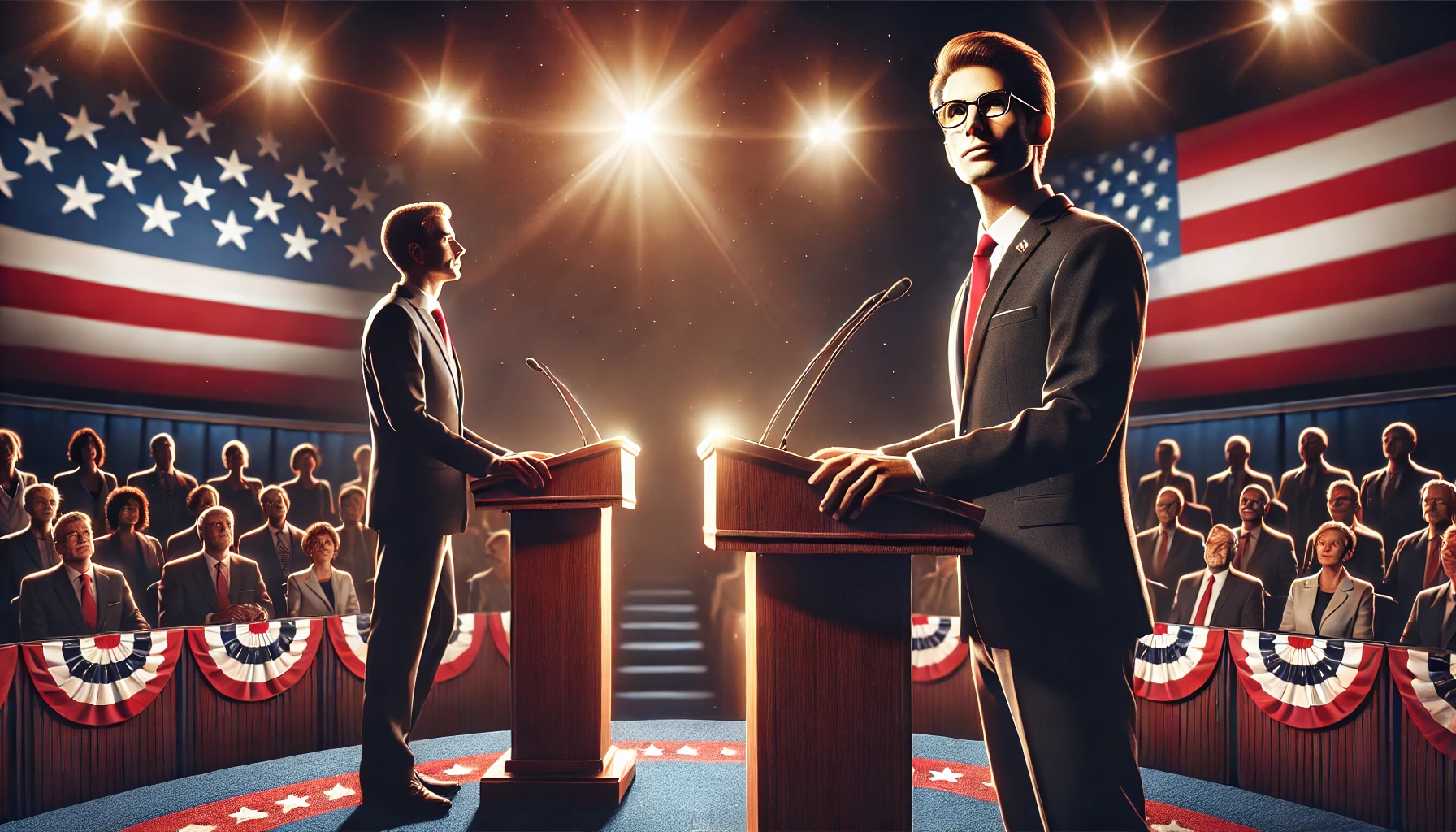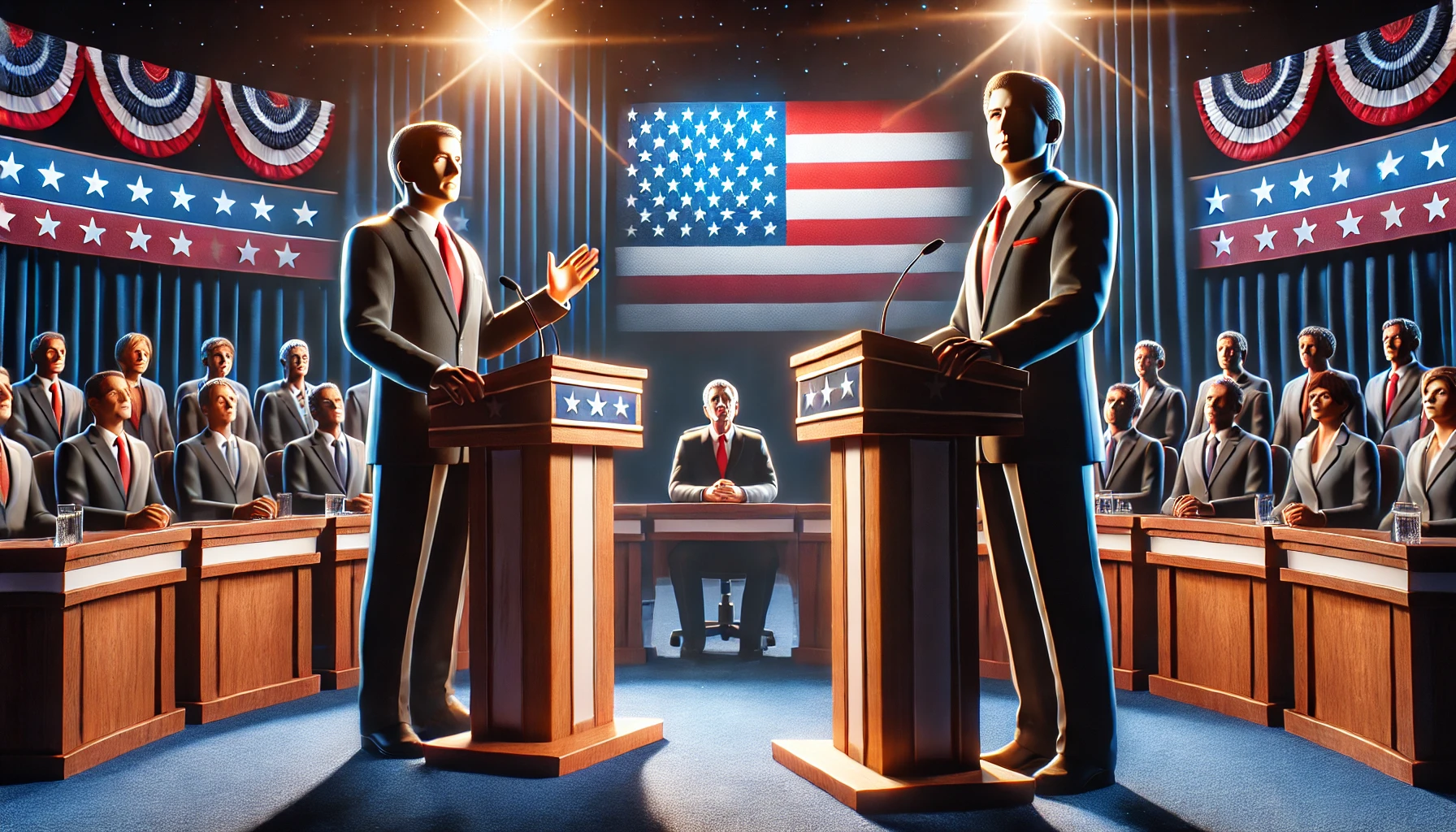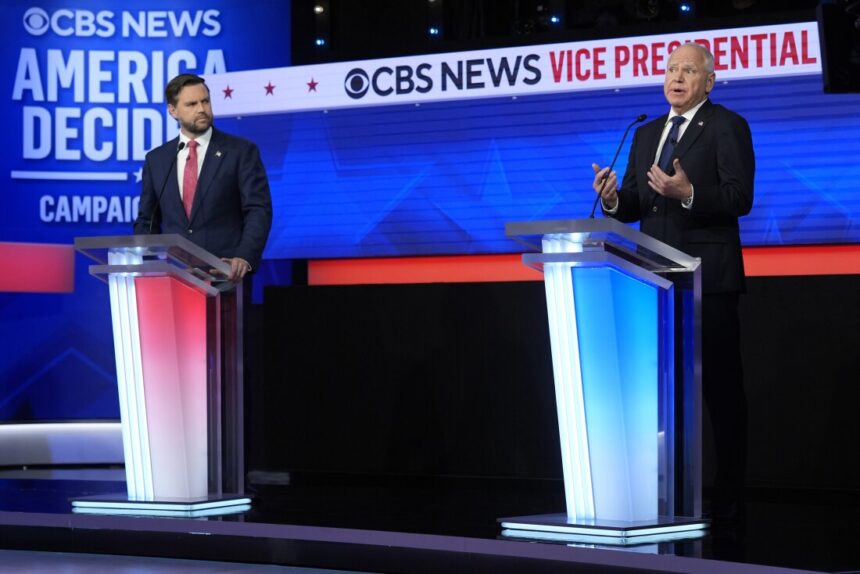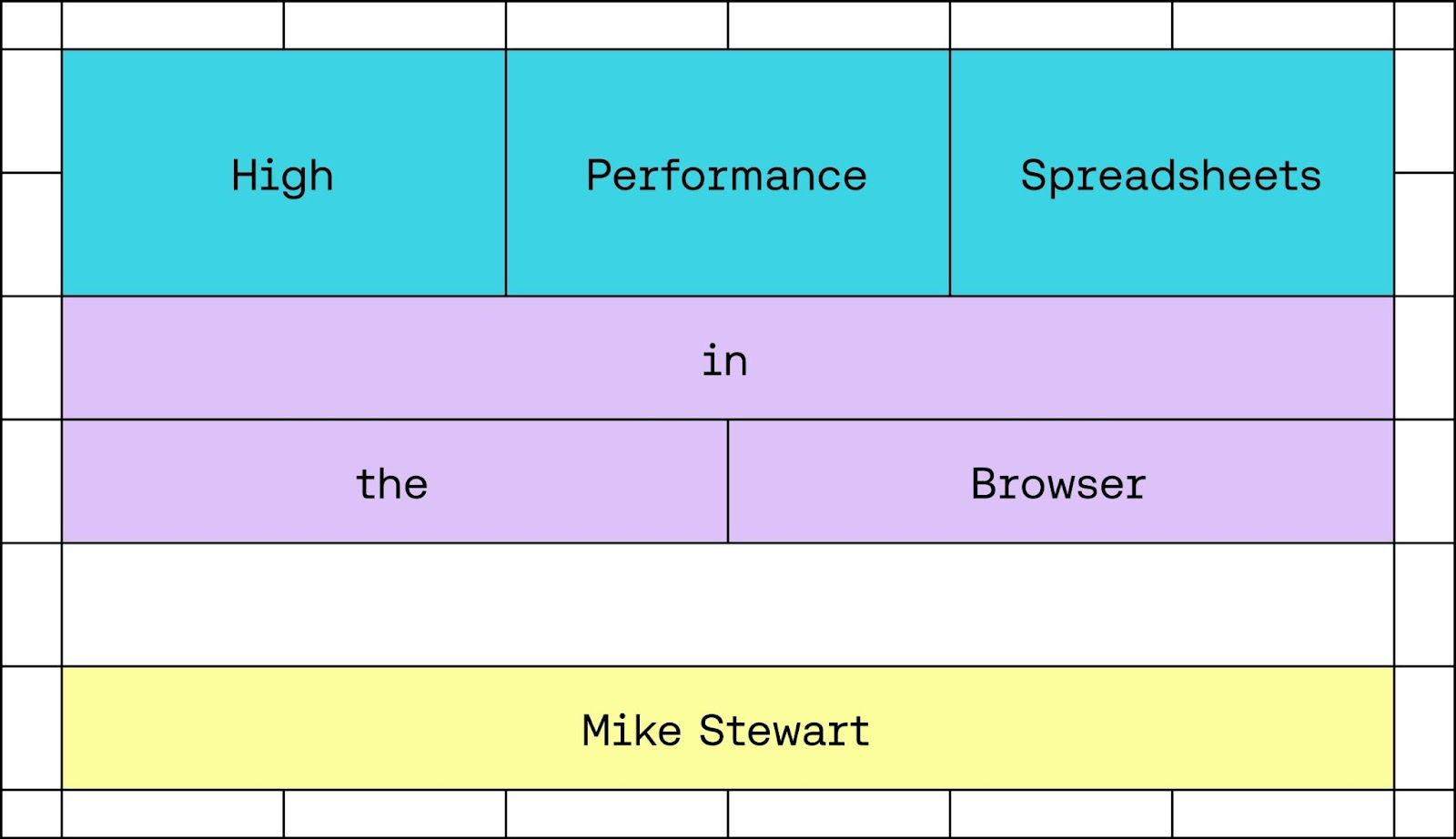In one of the most intense political showdowns of the year, Ohio Senator J.D. Vance and Minnesota Governor Tim Walz took to the stage for the highly anticipated VP Debate, setting the tone for the future of U.S. politics. The event, hosted at a key political juncture, saw the candidates passionately argue over the direction the country should take, with both vying to sway voters ahead of the crucial 2024 elections.
With an audience comprised of both supporters and skeptics, the VP Debate reflected the deep ideological divides currently dominating American politics. From economic recovery plans to immigration policies, the two men stood firmly in opposition, offering voters starkly different paths forward.

Economy The Heart of the VP Debate
One of the central themes of the VP Debate was the state of the economy. Vance, known for his close ties to the conservative movement, took aim at what he described as the “overreach” of federal government policies under the current administration. He blamed rising inflation, wage stagnation, and business closures on excessive government intervention and high taxation, stating, “The American dream is slipping away from the hands of everyday people because of unnecessary regulations and the tax burden on small businesses.”
In contrast, Walz defended the need for strong government programs, countering that economic inequality is the real threat to the country’s long-term prosperity. He highlighted his track record in Minnesota, which includes raising the minimum wage, expanding health coverage, and investing in green energy jobs. “The economy isn’t just about Wall Street. It’s about ensuring that every family can put food on the table and afford to send their children to college. That’s what we’re fighting for,” Walz said, positioning himself as a champion of working families during the VP Debate.
Immigration A Battle Over Borders and Compassion in the VP Debate
Immigration reform became another flashpoint during the VP Debate, with Vance taking a hardline stance, calling for stricter enforcement at the southern border. He highlighted the recent rise in migrant crossings as a major threat to national security and the economy, promising to back policies that would fortify border security, reduce immigration levels, and prevent undocumented immigrants from accessing public services.
Walz, however, argued for a more humanitarian approach, stating that immigration reform should focus on both protecting the nation and recognizing the contributions of immigrants to the country. “These people are part of the fabric of our communities,” Walz said, calling for policies that balance enforcement with compassion. He framed the issue as a key talking point throughout the VP Debate.

Healthcare in the VP Debate A Debate Over Access and Affordability
The VP Debate also touched on healthcare, a key concern for voters across the country. Vance took aim at the Affordable Care Act, often referred to as “Obamacare,” arguing that it has driven up costs and made healthcare less accessible for many Americans. “We need a market-driven approach that encourages competition and reduces the burden on taxpayers,” Vance declared. He proposed a system that would allow individuals to choose their own insurance providers, reducing government involvement.
Walz, however, passionately defended the Affordable Care Act, calling it one of the most important steps toward ensuring that all Americans have access to quality healthcare. He argued that the problem isn’t the Affordable Care Act itself, but rather the need to build upon it to address gaps in coverage. “Healthcare is a right, not a privilege. We can’t afford to go back to a time when millions of Americans were uninsured,” Walz argued, defending his stance during the VP Debate.
For more updates visit US News
Climate Change in the VP Debate A Defining Issue for the Next Generation
Another major issue that set the candidates apart in the VP Debate was climate change. Governor Walz spoke about the urgent need for action on climate change, calling it one of the defining challenges of the 21st century. “The science is clear. We are running out of time. If we don’t act now, future generations will pay the price for our inaction,” Walz stated. He promoted a green energy agenda that includes investments in renewable energy sources, reducing carbon emissions, and creating new jobs in the clean energy sector.
Vance, however, was more skeptical about sweeping climate policies, suggesting that such measures could hurt the economy and lead to job losses. “We need to be realistic about how we transition to clean energy,” Vance said during the VP Debate. While acknowledging the need to address climate change, he emphasized that any policies must not come at the expense of American jobs, particularly in industries like coal and oil.
Social Justice in the VP Debate A Fight for the Soul of the Nation
The candidates also clashed over issues of social justice and racial equality. Walz called for greater investments in marginalized communities, stronger protections for voting rights, and an overhaul of the criminal justice system. “We can’t turn a blind eye to the systemic inequalities that still exist in this country,” Walz said during the VP Debate. He pledged to push for policies that address racial disparities in healthcare, education, and employment.
Vance, while expressing support for equal opportunities, criticized what he called “identity politics” and the “politicization of race.” He argued that focusing too much on issues of race and identity can be divisive and counterproductive. “We need to focus on what unites us, not what divides us,” Vance said, advocating for policies that he claims would lift all Americans, regardless of race or background.

The Future of America VP Debate Offers Stark Choices
As the VP Debate concluded, it became clear that the two candidates represent not just different policies, but fundamentally different visions for the future of America. Vance’s appeal to conservative principles of limited government, strong national defense, and free-market economics stood in sharp contrast to Walz’s progressive platform of social justice, climate action, and expanded healthcare access.
The VP Debate offered a preview of the high-stakes battle to come as the election season heats up, with voters facing a clear choice between two very different paths forward for the country.







